
Sustainability report
Since 2017, we have been reporting on issues related to the sustainable development of the LPP Group, presenting our activities in the environmental, social and corporate governance areas. Starting from the report for 2024, statements regarding sustainable development are part of the Consolidated Annual Reports of the LPP SA Group.
factories from Pakistan audited in accordance with the amfori BSCI standard
cardboard boxes were reused in Distribution Centers in Pruszcz Gdański, Brześć Kujawski and Bucharest

Our reports
Each report is a compendium of knowledge about LPP, our business model and the impact we have on the lives of our employees, members of local communities and the environment.
It is also an excellent basis for verifying our progress in achieving the objectives we have adopted.
1. Business model
LPP consistently implements its development strategy, which is based on: omnichannel, digitalization, sustainable development and expansion into new markets. We want to increase the availability of our offer on both the domestic and foreign markets, while responding to global challenges and customer needs.
3 design offices in Poland (Gdańsk, Cracow, Warsaw)
Almost 400 designers, 5 diverse brands
Over 2 200 suppliers from Asia and Europe
3 overseas production coordination offices (Shanghai, Dhaka, Istanbul)
We do not have our own manufacturing facilities, and we outsource the sewing of our designed collections to external companies.
Import – 86% is sea transport
Export – 100% is road transport
600 thous. m2 of total warehouse space
4 Distribution Centers and 4 Fulfilment Center warehouses
Collection availability (stationary and online stores) in 40 countries on 3 continents.
2,847 stores with the combined space of 2,448.7 thous. m2 in 29 countries
Online sales in 35 countries
Nearly 687 million pieces of clothing and accessories sold annually
Awards and rankings in the reporting period
A CSR Golden Leaf for overall efforts and a CSR Green Leaf for reducing the impact of the negative climate.
LPP received the Gold Award for its polyester textile recycling technology project, which allows used clothes to be reused as a raw material for new fibres.
First place in a survey of investor relations in WIG30 companies.
2. Environmental impact
We consistently strive to achieve decarbonization goals verified and approved by SBTi. Our transportation, logistics, offices and warehouses are changing, as well as the way we obtain raw materials for production.
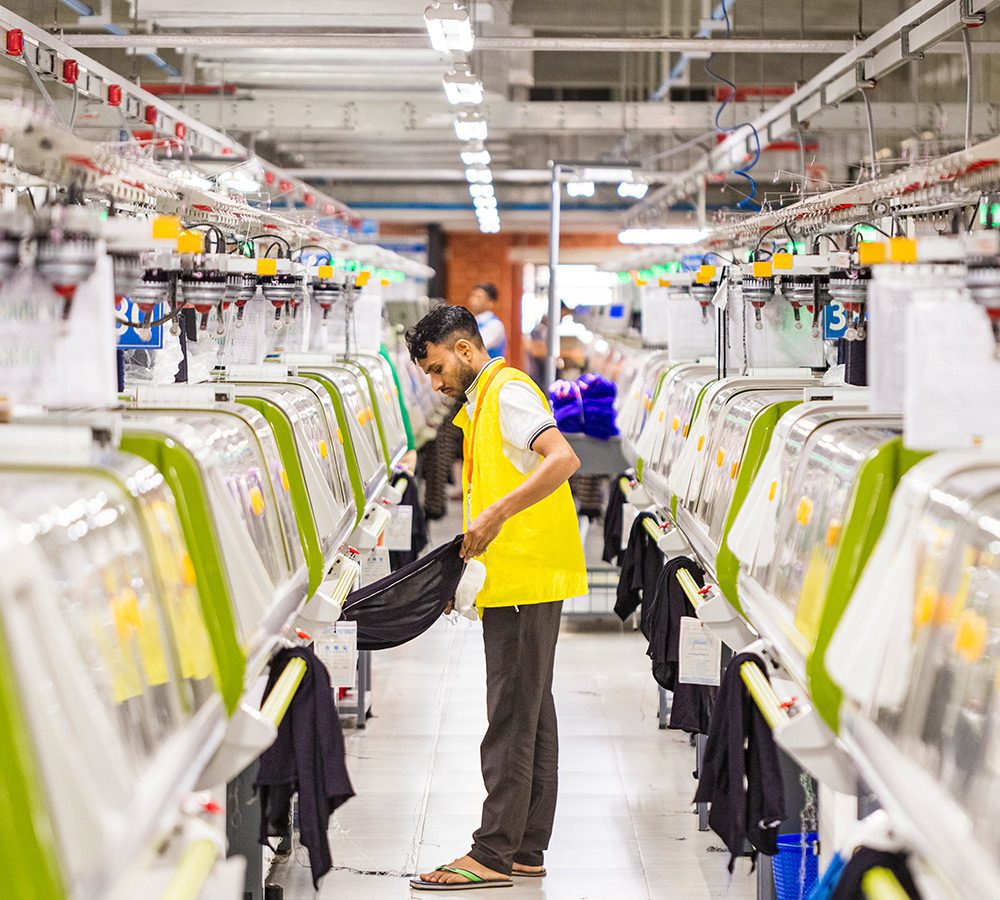
We continued our cooperation with the Polish startup Use Waste. We allocated another million PLN for this purpose. The first stage of this cooperation ended with the production of polyester thread from textile waste. The aim of the next stage, which will end in the first half of 2025, is to expand the use of technology, thanks to which fibers from material mixtures most often used in the textile industry can be separated into fractions and raw materials can be extracted from them, which, in accordance with the textile-to-textile idea, will become a resource, not waste. Ultimately, textile-to-textile recycling will allow for closing the textile cycle and at the same time reducing the use of primary raw materials in the production process of our collections.
We have expanded the collection of used clothing to the first countries abroad – the Czech Republic, Slovakia and Great Britain. This campaign is our response to the need to close the textile cycle and extend the life of clothes, shoes and accessories that our customers no longer need. It is also a way to reduce textile waste and at the same time support social initiatives.

Our decarbonisation goals have been scientifically verified and approved by the international Science Based Targets (SBTi) initiative. They include a plan for reducing greenhouse gas emissions by 2030 in categories that most significantly contribute to our carbon footprint.
We have conducted an educational campaign called “Wear Your Story” promoting conscious and responsible use of clothes and encouraging repair and re-use to bring real benefits to the environment and reduce textile waste. This is the second edition of the “Take Care of Your Clothes” campaign, which broadens knowledge about responsible consumption among consumers and encourages them to change their daily fashion habits.
of the polybags, in which we receive goods from suppliers, are recycled.
recycled cardboard boxes purchased for FC and DC warehouses in Poland
cartons reused
3. Social impact
LPP’s business activities affect our employees and associates, the local community, all individuals and entities in the supply chain and customers. Dialogue with stakeholders is at the heart of our relationships and significantly influences LPP’s sustainability decision-making processes.

We have implemented numerous regulations and procedures in our companies to ensure a single standard for hiring and building relationships with employees.
Supply chain
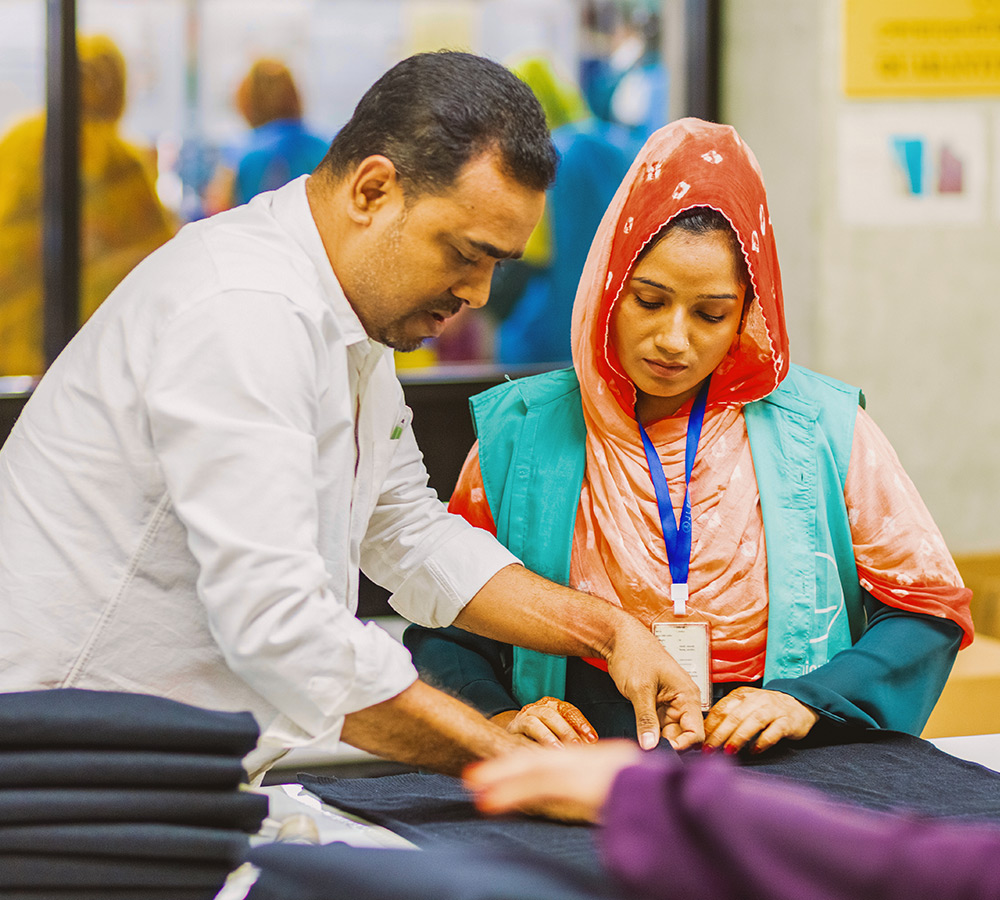
We continue the activities conducted as part of international associations and initiatives, including International Accord for Health and Safety in the Textile and Garment Industry, Cotton Made in Africa, Zero Discharge of Hazardous Chemicals.
All factories and suppliers who wish to cooperate with LPP are required to accept and implement the LPP Code of Conduct. The document precisely defines our requirements regarding working conditions.
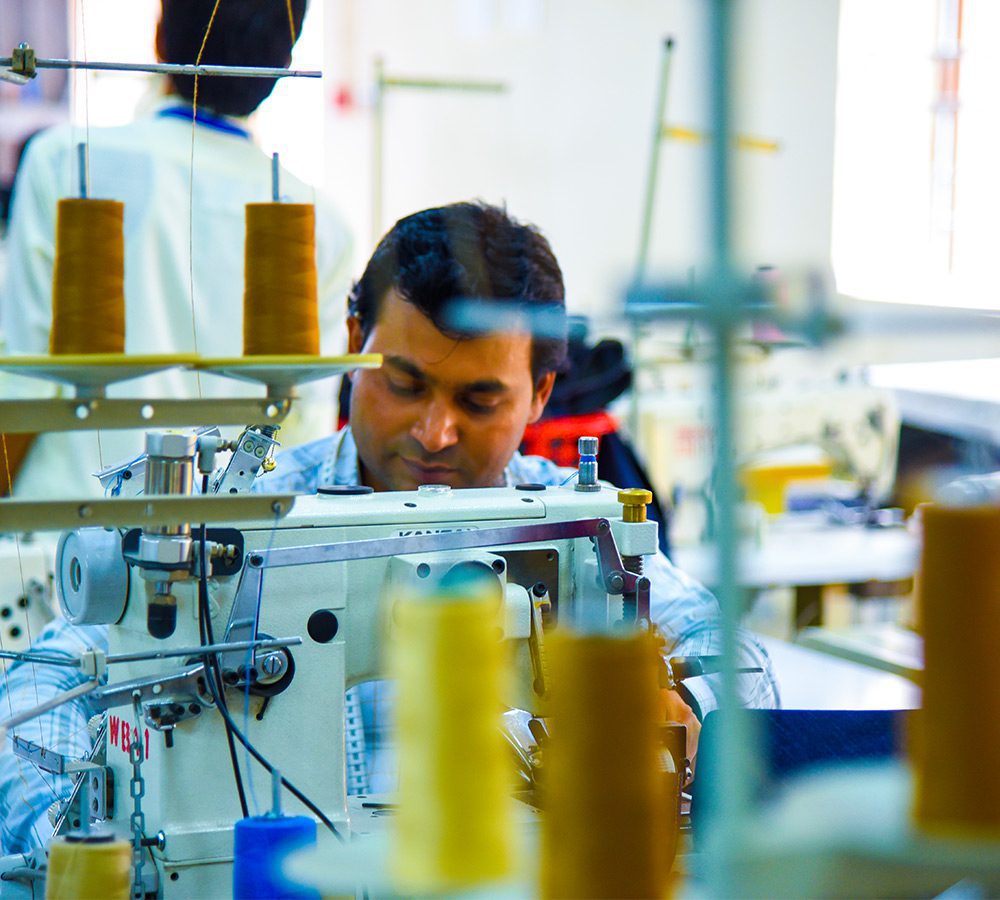
Compliance with the Code is regularly verified by our team of auditors and in cooperation with international organizations (including International Accord and amfori BSCI).
Currently, 99% of factories in Pakistan and 84% of factories in Bangladesh have been audited to the amfori BSCI standard. Amfori BSCI also monitors suppliers from India, Turkey, Cambodia, Myanmar and China.
In 2024, we joined Cascale’s initiatives, which focus on systemic actions for decarbonization, environmental efficiency improvement and energy transition.
The organization creates and promotes industry standards and policies that support emission reduction in the apparel industry and related sectors. Collaborating with Cascale helps us accelerate decarbonization efforts in the supply chain, drive innovation and positive change across the industry.
quality checks in 2024
of our children’s collection garments are inspected with special metal detectors – thus eliminating the risk of leaving parts of sewing needles
audits in China and Bangladesh in terms of humidity
QAS audits in the year 2024
Workplace
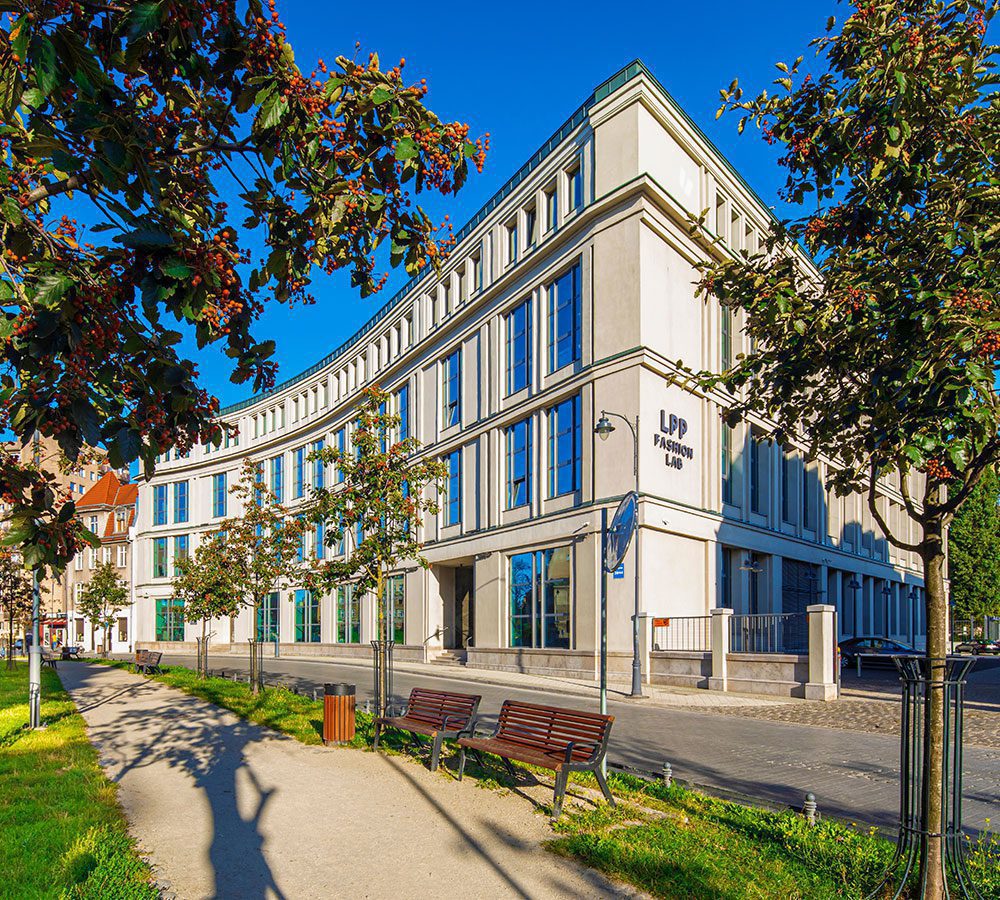
In 2024, the LPP Group created jobs for over 54,000 people in Poland and abroad. Our offices, stores and warehouse facilities are created by talented specialists, outstanding experts and people who are just starting to gain professional experience.
In line with the announced business strategy, over the next 3 years LPP plans to quadruple the stationary Sinsay sales network. In 2027, the number of stores of this brand will reach approx. 6,000 in 27 markets, and the entire network of the Group will increase to approx. 7,500 salons.
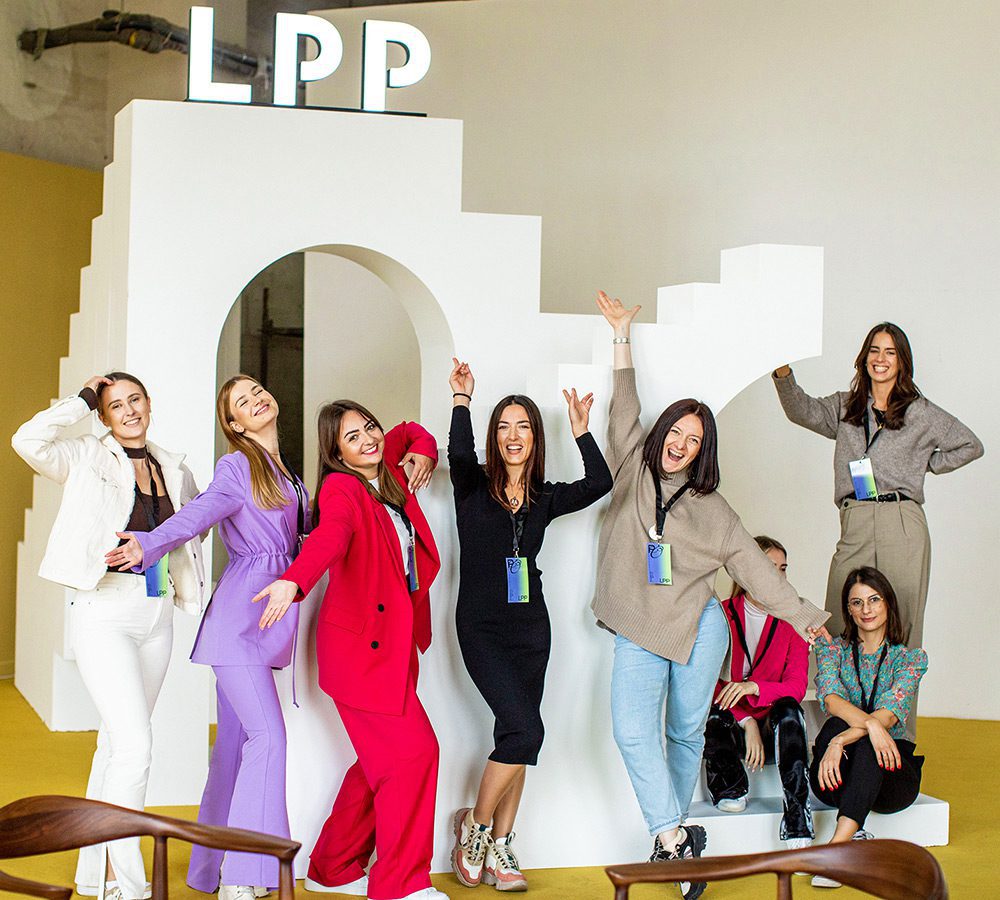
In connection with the planned strategy of further intensive development, we have introduced a new employer branding strategy "We attract with products. We inspire with people", the aim of which is to acquire and retain talent throughout the organization and to perceive LPP in the retail industry as the first-choice brand on the labor market.
The aim of the strategy is to acquire and retain talent not only at LPP headquarters, but also in rapidly developing sales teams almost all over Europe.
LPP Foundation
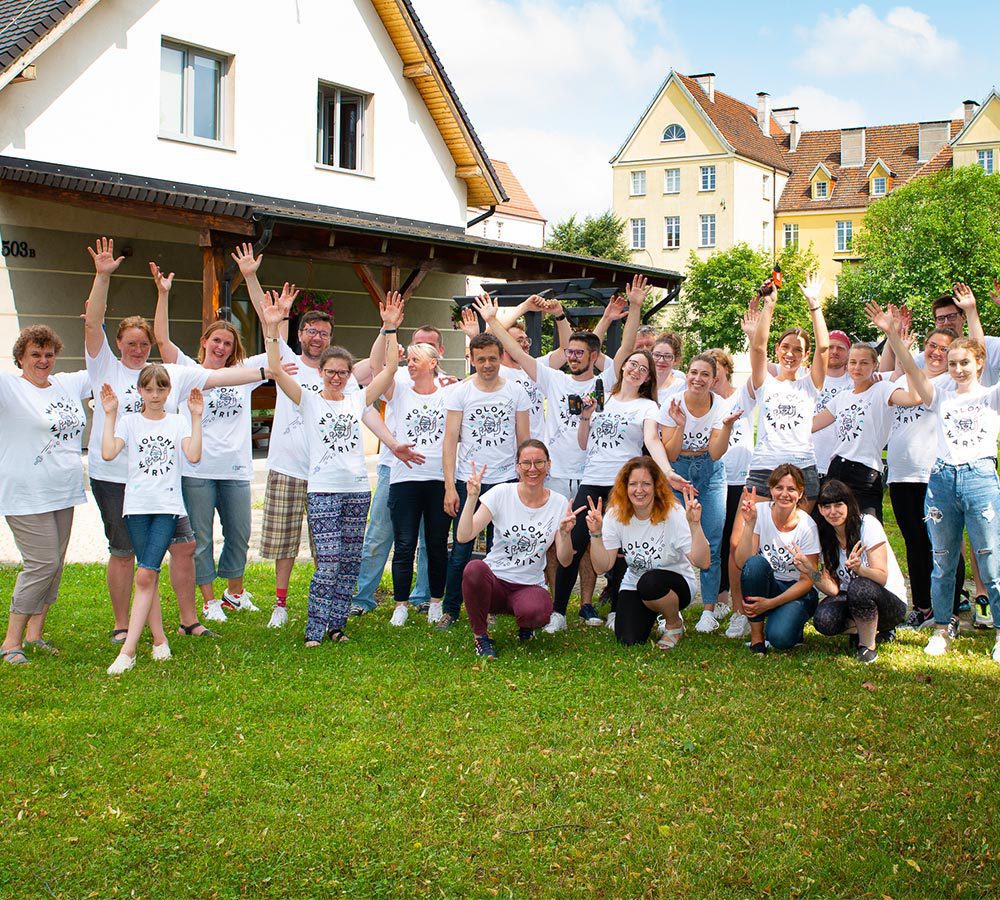
The LPP Foundation manages the social involvement of the LPP Group. We cooperate with organizations whose mission is to support, among others, residents of children's homes and people with disabilities. As part of the original program "Fashion for a better start", over 300 residents of children's homes in Pomerania and Małopolska, use financial resources on a daily basis for additional medical care, education and the development of passions.
As part of the development of the program, young people have recently been taking part in additional English lessons, and residents who want to become independent receive a scholarship from us to enter adult life.

One of the key areas of the LPP Foundation's activities is supporting the mental health of children and young people. For several years, we have been cooperating with organizations that conduct various activities for mental well-being. We finance the activities of a club for young people, where they can spend their free time in safe conditions and receive psychological support.
We finance the operation of the Youth Helpline, run by the ITAKA Foundation. We support the PoMOCy Academy, run by employees of the Provincial Psychiatric Hospital in Gdańsk. We also engage in activities aimed at promoting knowledge about mental health prevention by supporting educational projects and conferences devoted to this topic.

LPP Group employees regularly engage in the LPP Foundation's activities, and through volunteering they have the opportunity to implement aid initiatives for local communities, medical facilities, and homeless animals. Our employees also participate in activities that directly use their talents and competences.
They are involved in activities related to clothing design, styling, arrangement work, and organizing creative workshops. Over 3.5 thousand volunteers have participated in volunteer projects since 2018, spending over 63 thousand hours as part of volunteering.
4. Corporate governance
LPP’s corporate governance model underpins successful governance, effective oversight, transparent company-market communication and respect for shareholder rights. The implemented policies form an integral part of our operating system, enhancing its transparency and balancing the interests of all capital market participants.

At LPP, we implement a human and labour rights due diligence process in business relationships and across the value chain. The purpose of the process is to continuously identify the impact we exert, counteract and minimize the risks associated with it by implementing appropriate remedial and corrective actions. We monitor their effectiveness, stay in touch with stakeholders affected by the business activities of the LPP Group and provide a mechanism for reporting irregularities. The implementation of the due diligence process is overseen by a dedicated team established in 2023 within the ESG Committee.
In December 2023, as required by the OECD Guidelines for Multinational Enterprises, we updated, through a workshop, the map of the most significant human and labour rights risks. The key goal of this initiative was to evaluate the risks associated with the company's staff, employees working in the value chain, communities affected by our impact and end consumers and users, considering people or stakeholders from particularly vulnerable groups.

At LPP, we manage ESG issues in a centralised manner, working out environmental, social and corporate governance solutions that are consistent across all touchpoints in the organisation. In 2022, we initiated our efforts that will allow us to fully comply with the new EU Corporate Sustainability Reporting Directive and the European Sustainability Reporting Standards (ESRS).
The Director of Procurement and ESG reports directly to the CEO of LPP. Supporting the Board and the Director of Procurement and ESG in defining ESG objectives and policies is the ESG Committee, which includes, for example, the directors of our company’s key business units.
Corporate governance
We strive to ensure transparency in our operations and clear communication with all our stakeholders. The activities of LPP SA, which is the parent company of the LPP Group, are regulated by a number of documents. For example, we comply with the new principles of corporate governance, entitled The ‘Code of Best Practice for WSE Listed Companies 2021’ (DPSN, Principles of Corporate Governance), which the WSE announced in 2021. The activities of LPP SA, which is our parent company in the LPP Group, are regulated in particular by:
Sustainability reporting
Here you will find our publications related to the sustainability reporting process over the years. Check LPP's progress and learn about our detailed environmental, social and business results.
Our publications 2017 - 2024
The LPP Integrated Reports, which present non-financial and financial results for LPP SA and the LPP Group, have been produced since 2017 and initially cover the calendar year. In 2019, data, as an exception, came from 13 months (from 1 January 2019 to 31 January 2020). The 2020 report covers the period from 1 February 2020 to 31 January 2021.
The switch in reporting from the calendar year to the financial year, which ends on the last day of January, increases the usefulness of the reports as this treatment better captures the seasonality of the business. Accordingly, the latest report for 2022/23 also covers the financial year, i.e. the period from 1 February 2023 to 31 January 2024.




